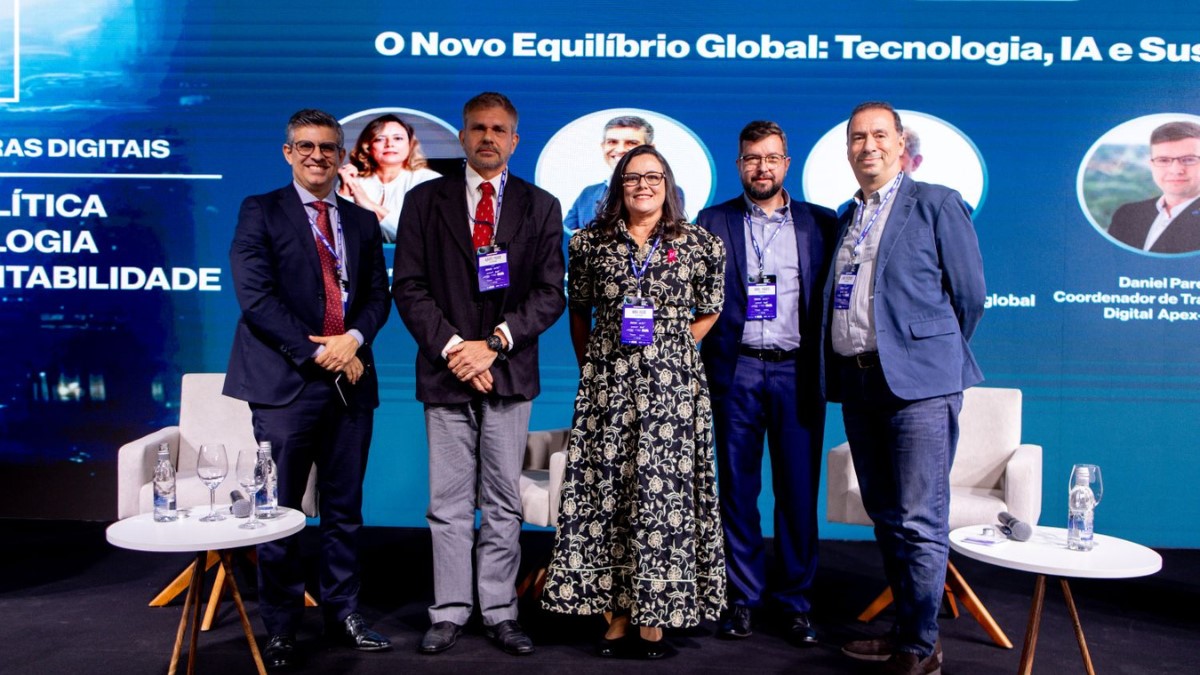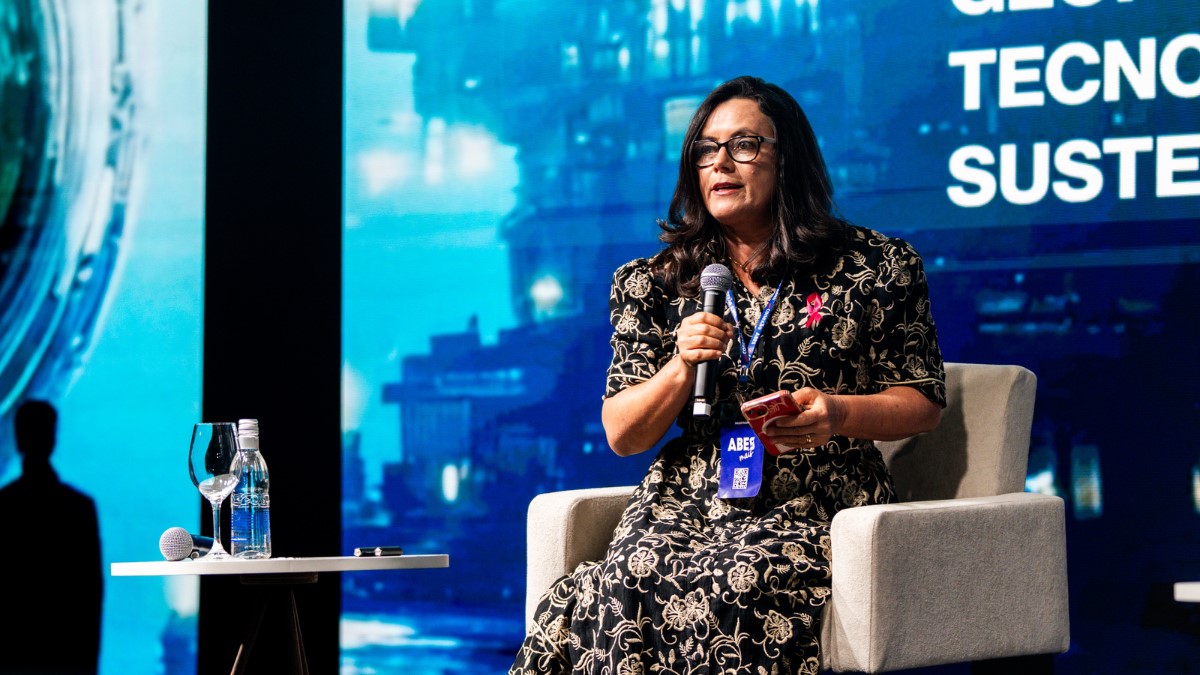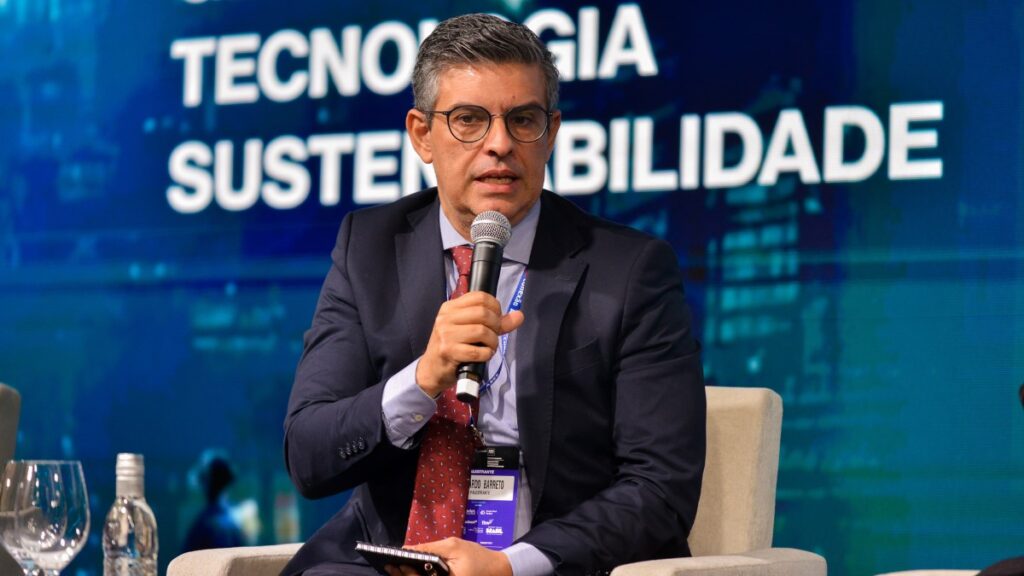
Technopolarity is a central theme of the debates at the ABES Summit 2025, an event promoted by ABES – Brazilian Association of Software Companies, whose main theme is “Digital Frontiers: Geopolitics, Technology and Sustainability”According to Silvio Cascione, Research Director and Head of Eurasia Group in Brazil, the country is well-positioned in the geopolitical landscape: "We have a large and deep market for technological solutions. No one has a definitive answer about where we're headed, but the dynamics will depend on the next steps in technology and the ability to regulate them, as well as public-private partnerships—such as Redata, which demonstrate the government's interest in attracting investment. Companies that know how to take advantage of trade agreements, international partnerships, and the opening of new markets will be more prosperous, even in an unstable environment."
 In the panel dedicated to the New Global Balance, moderated by Jaime Spitzcovisky, a journalist for FECOMERCIO's Canal UM BRASIL and an international affairs specialist, Maria Mazzarello Veloso—business advisor, board member, and CEO of Olusac—highlighted that, in the new power structure, the competition is for infrastructure, security standards, innovation, and sovereignty: "We need to understand that today, those who govern are no longer those who control territories. Those who govern today are those who control data, energy, and intelligence. The race is for semiconductors, critical minerals, and computer graphics."
In the panel dedicated to the New Global Balance, moderated by Jaime Spitzcovisky, a journalist for FECOMERCIO's Canal UM BRASIL and an international affairs specialist, Maria Mazzarello Veloso—business advisor, board member, and CEO of Olusac—highlighted that, in the new power structure, the competition is for infrastructure, security standards, innovation, and sovereignty: "We need to understand that today, those who govern are no longer those who control territories. Those who govern today are those who control data, energy, and intelligence. The race is for semiconductors, critical minerals, and computer graphics."
For Leonardo Barreto, PhD in Political Science from the University of Brasília, partner at the consultancy firm Think Policy, and consultant at Vector Government Relations, "The bandwagon has passed. The progress we're experiencing has multiple facets, and ignoring this is a mistake. The polarization between the United States and China already demands a profound diplomatic debate: what kind of alliance will Brazil form? In what sphere of influence will we position ourselves? Perhaps we'll once again adopt a swing-and-miss policy, trying to extract benefits from both sides—if that's still possible. We don't know."
The technology services sector—especially computing and telecommunications—is currently primarily responsible for a potential shift in Brazil's international integration pattern, according to Alberto Pfeifer, Senior Policy Fellow in Geopolitics, Strategy, and International Security at Insper Agro Global: "Currently, the debate on global integration is largely focused on trade in goods, such as agriculture. However, our largest deficit is in services. Over the last five years, we have accumulated a deficit of approximately $200 billion in the services balance, a quarter of which comes from the information technology and telecommunications industry. This is a sector in which we have an annual deficit with the United States and all of our main trading partners. It's a dependence that's not only technological, but also financial. Therefore, this sector is crucial for the country's future."
 Daniel Parente, Digital Transformation Coordinator at ApexBrasil, reinforced that "Brazil needs to position itself as a supplier, not just a consumer, of software and technology solutions. Software exports have been growing significantly—especially since last year, with impressive progress. Analyzing performance reports, it's clear that we already have a very versatile and relevant offering, especially for countries with cultural similarities to Brazil. There is still much room for improvement, and this potential is directly linked to the sector's structural characteristics, such as technical capabilities, innovation, digital infrastructure, and incentive policies."
Daniel Parente, Digital Transformation Coordinator at ApexBrasil, reinforced that "Brazil needs to position itself as a supplier, not just a consumer, of software and technology solutions. Software exports have been growing significantly—especially since last year, with impressive progress. Analyzing performance reports, it's clear that we already have a very versatile and relevant offering, especially for countries with cultural similarities to Brazil. There is still much room for improvement, and this potential is directly linked to the sector's structural characteristics, such as technical capabilities, innovation, digital infrastructure, and incentive policies."
About ABES SUMMIT
The 15th edition of ABES SUMMIT, held in October 8th at the JW Marriott, in São Paulo, had as its central theme “Digital Frontiers – Geopolitics, Technology and Sustainability”. The event promoted a day of immersion for CEOs, leaders and government representatives, aiming to highlight the power of technology to accelerate business and economic transformation. In a scenario of global recalibration where technology and geopolitics intertwine, the ABES SUMMIT discussed practical strategies to address challenges such as the dominance of Artificial Intelligence (AI) and Agentic AI, a cybersecurity global, regulation and public policies, and the qualification of workforce. The focus was on the strategic role of Brazil, which can establish itself as a global protagonist in energy transition, in the preservation of biodiversity and digital advancement, due to its clean matrix and innovation ecosystem. The ABES SUMMIT 2025 featured free online broadcast it's the BMV seal, offsetting 100% of environmental impacts.
Sponsors: ApexBrasil, Finep, Embrapii, Kaspersky, Nic.br, Caesbra Benefits, Banco do Brasil, Devfy and Digiforte.
Watch the ABES SUMMIT 2025 panels: https://youtube.com/playlist?list=PL2X1JJqBpAkMM7gQhOIAmH9pZwpIG4jQ8&si=i4xIh0sAI-kunjvj

















